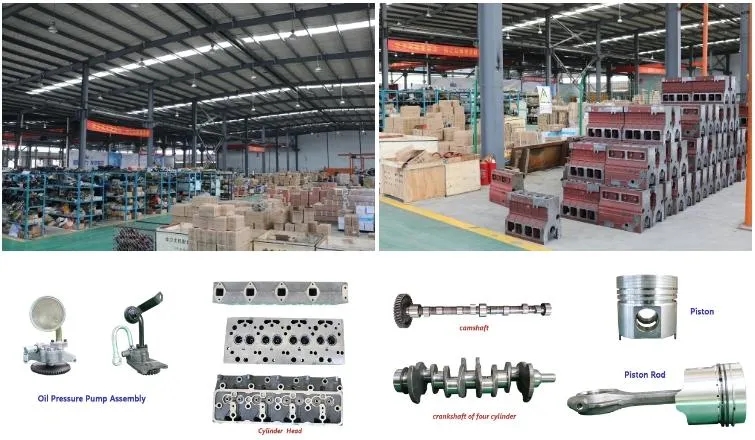Introduction
Diesel generators are a crucial source of backup power in various industries and applications, providing a reliable source of electricity during outages or in remote locations. However, operating diesel generators in dusty conditions presents unique challenges that can impact their performance and longevity. Dust and debris can infiltrate the generator components, leading to reduced efficiency, increased maintenance requirements, and potential breakdowns. In this article, we will explore the importance of selecting the right diesel generator for dusty conditions, key considerations for maintenance and operation, as well as best practices to ensure optimal performance and longevity of the equipment.
Importance of Diesel Generators in Dusty Conditions

In industries such as mining, construction, agriculture, and telecommunications, diesel generators are often the primary source of power due to their reliability and ability to provide continuous electricity supply. These industries often operate in dusty environments where dust and debris are common, posing a challenge to the efficient functioning of diesel generators. Dust can accumulate on the generator components, such as air filters, cooling systems, and electrical connections, leading to overheating, reduced airflow, and potential short circuits. As a result, the performance and lifespan of diesel generators can be significantly affected if proper precautions are not taken to address these challenges.
Selecting the Right Diesel Generator for Dusty Conditions
When choosing a diesel generator for dusty conditions, several factors need to be considered to ensure optimal performance and longevity. The following are key considerations to keep in mind:
1. https://www.lkpowerplant.com : Selecting a diesel generator with a robust enclosure design is essential for protecting the internal components from dust and debris. Enclosures with proper ventilation and filtration systems can help prevent dust ingress while maintaining optimal airflow for cooling.
2. Air Filtration System: The air filtration system of a diesel generator is critical for preventing dust particles from entering the engine and causing damage. High-quality air filters with efficient filtration capabilities should be installed and regularly maintained to ensure clean air intake.
3. Cooling System: Dust accumulation on the cooling system components can lead to overheating and reduced efficiency. Choosing a diesel generator with a reliable cooling system that is resistant to dust buildup is vital for maintaining optimal operating temperatures.
4. Sealing and Gasketing: Ensuring that the generator enclosure, doors, and access panels are properly sealed with gaskets can help prevent dust infiltration into sensitive components. Regular inspection and maintenance of seals and gaskets are necessary to maintain their effectiveness.
5. Corrosion Resistance: Dust particles can contain abrasive materials that can cause corrosion on metal surfaces over time. Selecting a diesel generator with corrosion-resistant materials and coatings can help prolong the equipment's lifespan in dusty conditions.
Maintenance and Operation Best Practices
Proper maintenance and operation practices are essential for ensuring the reliable performance of diesel generators in dusty conditions. The following best practices can help mitigate the impact of dust on the equipment:
1. Regular Inspection: Conducting regular visual inspections of the generator components, including air filters, cooling systems, electrical connections, and enclosures, can help identify any signs of dust accumulation or damage. Prompt action should be taken to clean or replace any affected parts to prevent further issues.
2. Air Filter Maintenance: The air filters of diesel generators should be checked and cleaned or replaced according to the manufacturer's recommendations. Clogged or dirty air filters can restrict airflow to the engine, leading to decreased performance and potential engine damage.
3. Cooling System Cleaning: Dust buildup on the cooling system components, such as radiators and fans, should be regularly cleaned to maintain optimal cooling efficiency. Using compressed air or a soft brush to remove dust can help prevent overheating and ensure proper engine cooling.
4. Electrical System Protection: Dust can cause electrical connections to corrode or short circuit, leading to potential equipment failure. Inspecting and cleaning electrical connections regularly can help prevent these issues and ensure electrical safety.
5. Scheduled Maintenance: Following a comprehensive maintenance schedule provided by the generator manufacturer is crucial for ensuring the longevity and reliability of the equipment. Regular maintenance tasks, such as oil changes, filter replacements, and system checks, should be performed as recommended to prevent breakdowns and costly repairs.
Conclusion
Operating diesel generators in dusty conditions presents unique challenges that can impact the performance and longevity of the equipment. Selecting the right diesel generator with a robust enclosure design, efficient air filtration system, and corrosion-resistant materials is essential for ensuring reliable power supply in dusty environments. Implementing proper maintenance and operation practices, such as regular inspections, air filter cleaning, cooling system maintenance, and scheduled maintenance, can help mitigate the impact of dust on diesel generators and prolong their lifespan. By following these guidelines and best practices, industries can ensure that their diesel generators continue to provide uninterrupted power supply in even the most challenging dusty conditions.
